Statistics is boring … because it makes you think!
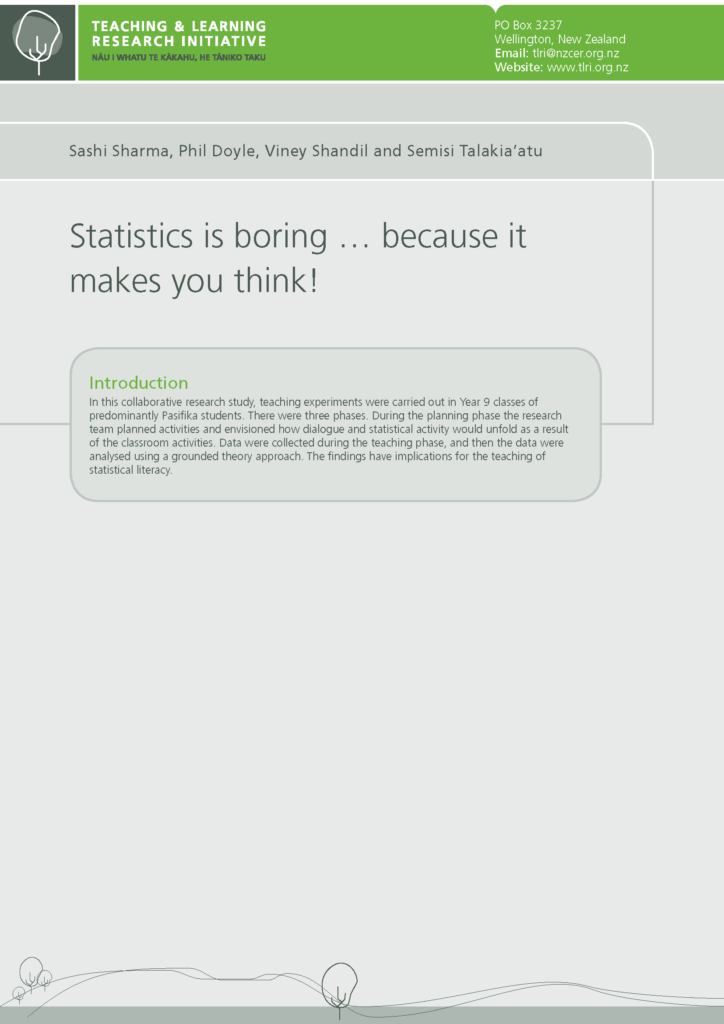
Introduction In this collaborative research study, teaching experiments were carried out in Year 9 classes of predominantly Pasifika students. There were three phases. During the planning phase the research team planned activities and envisioned how dialogue and statistical activity would unfold as a result of the classroom activities. Data were collected during the teaching phase, […]
Success for all: Improving Māori and Pasifika student success in degree-level studies
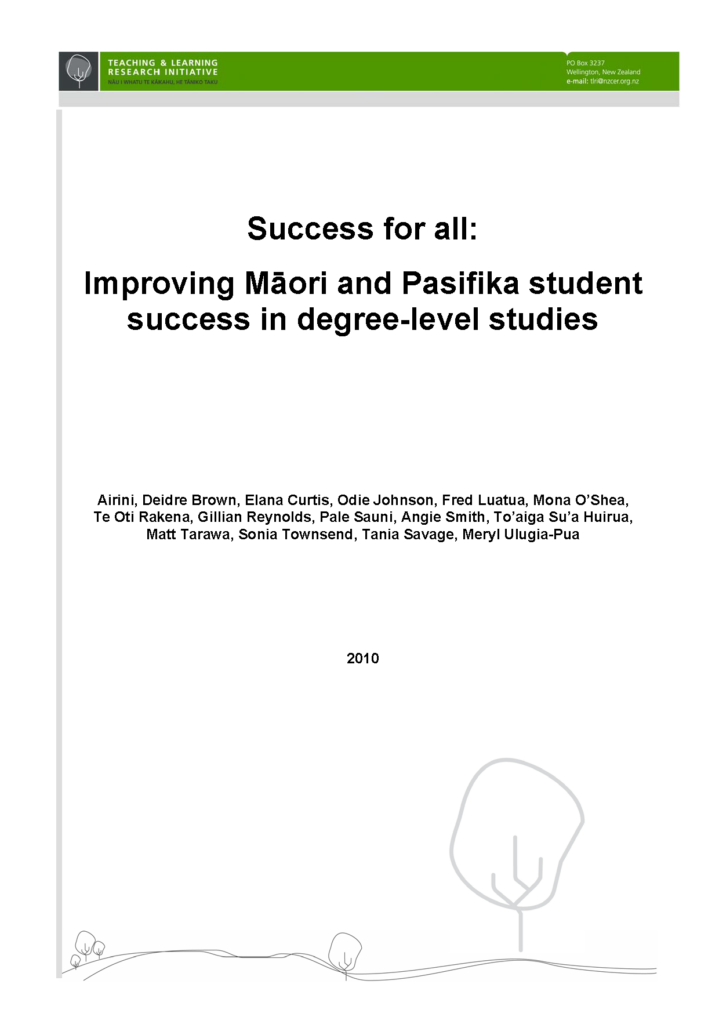
1. Introduction The Success for All project sought to examine the ways in which nonlecture teaching helps or hinders Māori student and Pasifika student success in preparing for or completing degree-level studies. Good practice was to be identified. This report is the final in a series of detailed technical reports from UniServices prepared by the […]
Are they ready to teach? Assessing student teachers’ final practicum
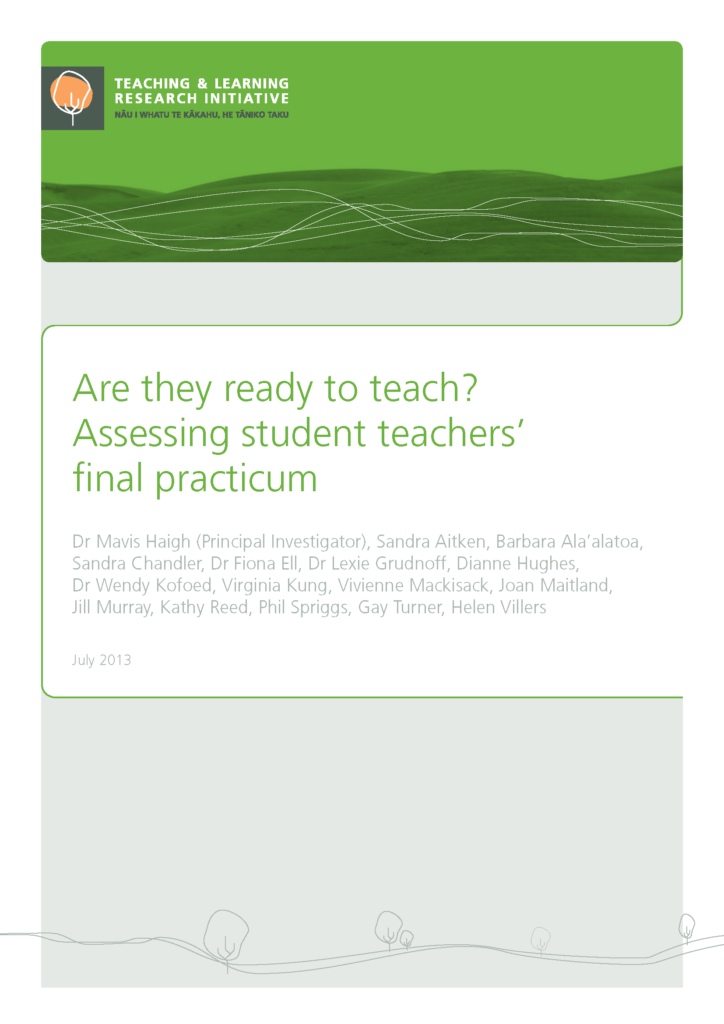
Introduction Although the practicum is generally accepted as a core element in teacher preparation programmes, the assessment of student teachers’ competence during practicums appears to be particularly problematic as making judgments about complex performances, such as teaching, is a sophisticated process. As with any form of assessment, judgments are made against some criterion or normative […]
Narratives of beginning Māori teachers: The forces that shape the first year of teaching
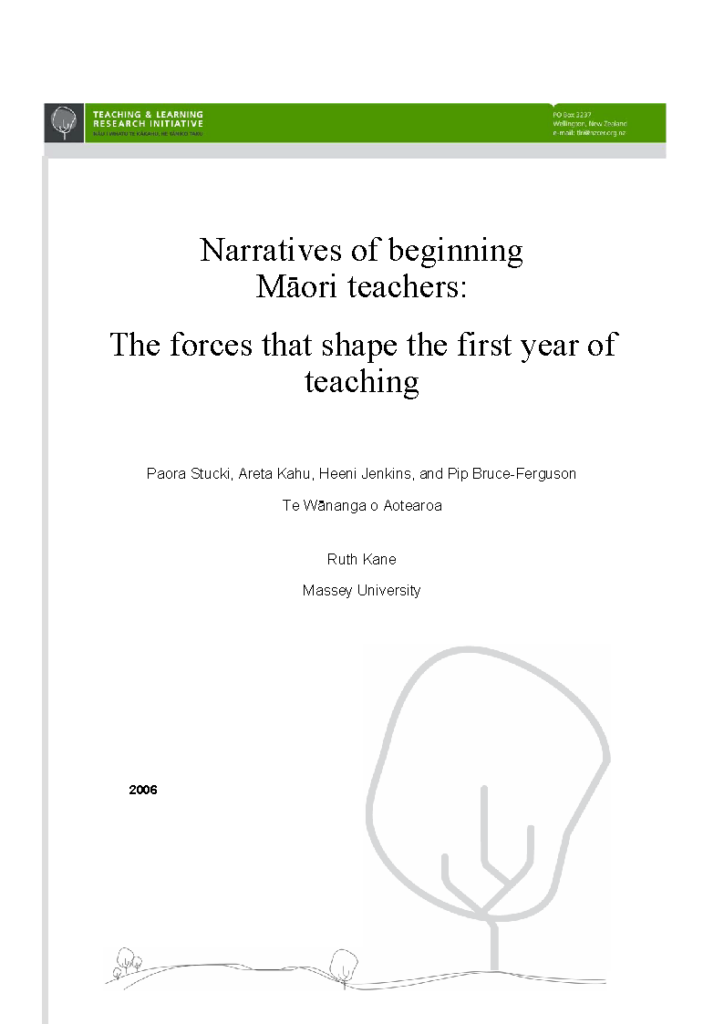
He Mihi Koia tënei ko te mihi i te tuatahi ki te hunga nä rätou i para te huarahi e whai nei mätou, arä, ko te tini kua ngaro atu i te tirohanga kanohi. Ko te tumanako rä, e tika ana tä mätou whai i te huarahi i whakamomori rä koutou ki te hanga hei […]
Observing assessment for learning (AfL) in action: Piloting an observation schedule to inform teacher assessment learning and research
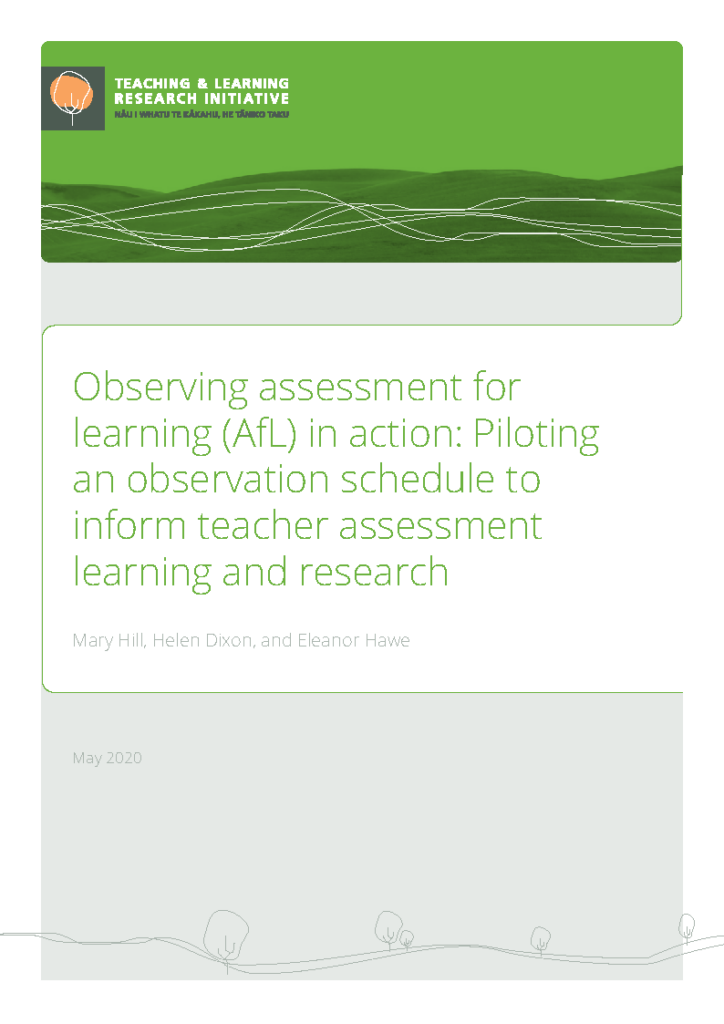
1. Introduction In New Zealand we lack valid and reliable evidence-based schedules with which to observe teachers’ assessment for learning (AfL) practices. To date, classroom assessment observation schedules have mainly been derived theoretically, used in developing countries with conditions different from New Zealand classrooms (Kanjee & Hopfenbeck, personal communications), or restricted to particular curriculum areas […]
